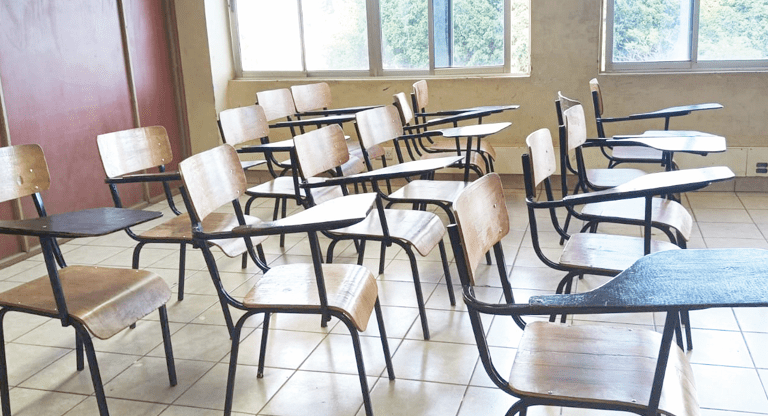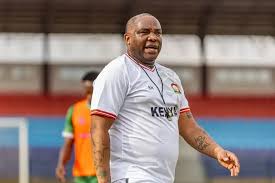Adolescents enter JSS without life skills

Kenya’s education system is undergoing a historic transformation with the implementation of the Competency-Based Curriculum (CBC), and one of its most visible shifts is the establishment of Junior Secondary School (JSS) for learners in Grades 7 to 9.
This transition comes at a pivotal time in a young person’s life—early adolescence—when children are navigating complex biological, emotional, and social changes that shape their identity and future.
Despite this critical phase, many adolescents are entering JSS without the life skills needed to cope with the realities of puberty, peer pressure, and personal decision-making.
Lacking a strong foundation in biological knowledge, they are vulnerable to misinformation, poor choices, and risky behaviours that can derail their education and well-being.
Adolescent transition
Adolescence, particularly between the ages of 10 and 14, marks a critical phase of development marked by physical, emotional, and social transformation.
At this stage, young learners begin to assert their independence, question authority, form new social relationships, and experience heightened self-awareness. Hormonal changes set off a chain of biological events—including growth spurts and the onset of puberty—which, when combined with emotional shifts, make adolescents increasingly vulnerable.
The adolescent journey is often turbulent. Many adolescents experience confusion about their changing identities, and peer pressure can steer them into risky behaviours such as early sexual activity, substance use, or confrontational behaviour.
Their still-developing decision-making abilities mean they are ill-equipped to weigh the consequences of their actions, leading to long-term challenges. In Kenya’s JSS, these struggles are becoming ever more evident.
School-Based Assessment
Without the grounding of biological knowledge or adequate life skills, many adolescents find themselves unprepared for this critical life stage, which can lead to school dropouts, broken family ties, and even encounters with the juvenile justice system.
Integrated Science in the CBC Context
Kenya’s CBC introduced Integrated Science at the JSS level to provide learners with a holistic scientific foundation. By combining key concepts from biology, chemistry, physics, and health education, the subject mirrors the interconnectedness of real life.
Integrated Science is built on a learner-centred philosophy. It encourages inquiry, critical thinking, and hands-on engagement through real-world case studies and problem-solving tasks.
This approach aligns perfectly with the CBC’s goal of cultivating capable, adaptable learners who can apply knowledge in everyday contexts.
The subject offers numerous opportunities to embed life skills within scientific content. A unit on human biology can be the gateway to discussions on personal hygiene, reproductive health, nutrition, and emotional wellness. Similarly, environmental science topics can facilitate conversations about individual responsibility and community wellbeing.
With the right teaching strategies, Integrated Science becomes a practical, transformative learning experience that equips adolescents to navigate the complexities of their lives.
Life skills gap crisis in waiting
Despite CBC’s progressive goals, a troubling number of JSS learners in Kenya are entering adolescence with little to no understanding of basic reproductive health and life skills. Many students cannot accurately name body parts, explain menstrual cycles, or describe the emotional shifts they are undergoing.
A 2022 report by the National Council for Population and Development found that nearly 20 per cent of adolescents aged 10–14 lacked fundamental knowledge about puberty and reproductive health.
Teachers across JSS institutions are raising the alarm. They observe learners grappling with physical and emotional changes without the tools to manage them.
Some students break down during reproductive health lessons, overwhelmed by embarrassment or fear. Others ask urgent and troubling questions that reveal how little they know about body safety, consent, and the consequences of early sexual activity.
This knowledge gap has grave social consequences. In some counties, girls as young as 12 are becoming pregnant, forcing them out of school and into early marriages.
Others may succumb to substance abuse, criminal activities, or mental health struggles due to a lack of support and poor decision-making. The gap in life skills threatens to derail the progress CBC aims to enhance, unless addressed with urgency and compassion.
Biology as foundation for life skills
Biology, central to Integrated Science, offers adolescents the tools to understand their bodies and their behaviours. Topics such as human reproduction, physical development, personal hygiene, and emotional regulation are not abstract concepts for JSS learners; they are lived experiences.
Educators who teach biology with empathy and clarity can help demystify puberty, reduce shame, and build confidence. Knowledge about bodily changes, hormonal influences on emotions, and hygiene practices not only empowers learners but also builds healthy self-image and emotional resilience.
This education also supports informed decision-making, enabling students to take ownership of their health and well-being.
Moreover, biological literacy reinforces the principles of body autonomy and mutual respect. Adolescents who understand how their bodies function are more likely to protect themselves and respect others.
In a cultural context where reproductive health is often silenced or stigmatised, science becomes a vehicle for debunking myths and replacing fear with facts.
By integrating biology with life skills, schools can turn science education into a foundation for personal growth and resilience, rather than mere academic achievement.
Strategies for effective integration
To make Integrated Science truly impactful, educators must apply intentional strategies that blend life skills seamlessly into scientific instruction. Lessons on reproductive health should naturally include discussions about consent, boundaries, and healthy relationships.
Nutrition topics can highlight how diet influences mood and growth. The nervous system can be linked to stress management and emotional well-being.
Interactive and learner-centred teaching methods are essential. Role-play, group discussions, and storytelling can help students process sensitive topics in a safe space.
Real-life case studies and science clubs can promote peer learning, mentorship, and critical thinking. These techniques not only enhance retention but also develop soft skills such as empathy, communication, and problem-solving.
To support these strategies, teachers must be trained in age-appropriate pedagogy and inclusive, culturally aware approaches. Confidence in handling sensitive topics is key to creating open, respectful learning environments. Schools must also partner with healthcare professionals to deliver accurate information through talks, screenings, and campaigns.
Parental involvement is equally crucial—when parents reinforce these lessons at home, learners receive consistent support that strengthens the school’s efforts.
Policy and curriculum implications
Realising the full potential of Integrated Science requires bold policy and curriculum reforms. First, life skills must be fully embedded into the learning outcomes of science education.
This includes competencies such as reproductive health literacy, communication, emotional intelligence, and responsible decision-making. These should not be treated as extracurricular or optional but as essential pillars of adolescent education.
Second, schools must reinforce psychosocial support systems. Trained counsellors, mentorship programmes, and peer networks can help students navigate the emotional aspects of adolescence. These services complement classroom learning and ensure a holistic approach to development.
Third, assessment strategies must evolve. Evaluating learners should include not only academic performance but also how well they demonstrate life skills in practical contexts. This reinforces the value of life skills and holds schools accountable for nurturing well-rounded individuals.
Kenya stands at a crucial crossroads in shaping the lives of its young people. If schools, teachers, parents, and policymakers do not act swiftly and collaboratively, we risk losing this group of learners to the harsh realities of the world—early pregnancies, substance abuse, crime, and hopelessness.
The Author is a Professor of Chemistry at the University of Eldoret, a former Vice-Chancellor, and a Quality Assurance Expert.














